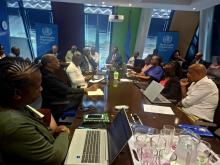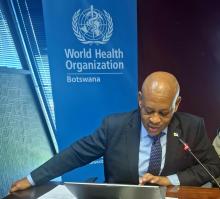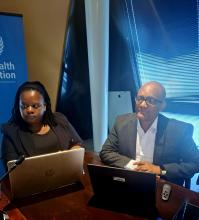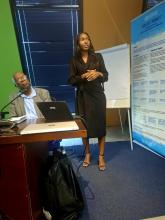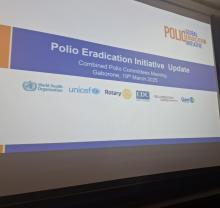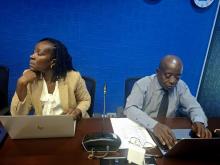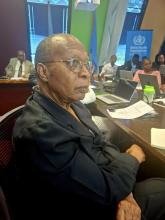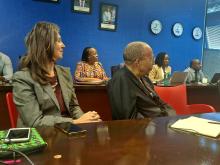Botswana intensifies polio fight: new strategies against cVDPV2 threats
Botswana has reinforced its efforts to eradicate polio as part of the global initiative outlined in the 2022-2029 Global Polio Eradication Strategy. At a recent National Certification Committee (NCC) meeting, experts reviewed Botswana’s progress in combating both wild poliovirus (WPV) and circulating vaccine-derived poliovirus type 2 (cVDPV2). The country has made notable advancements in surveillance and vaccination, with Dr. Melvin Leteane, who led the presentation on Botswana’s polio response, emphasizing the importance of early detection and rapid response to outbreaks. Dr. Leteane highlighted the transition away from the Oral Polio Vaccine (OPV) by 2030, underscoring the significance of this shift in reducing vaccine-derived polio cases.
Botswana’s efforts have seen tangible successes, including enhanced environmental surveillance that helped detect previously undetected cVDPV2 cases. There has also been a decrease in cVDPV2 cases across Southern Africa, thanks to strengthened interventions. Additionally, the introduction of the novel OPV2 (nOPV2), a more genetically stable vaccine, has played a crucial role in curbing outbreaks. These efforts have positioned Botswana as a key player in the fight against polio in Africa.
However, challenges remain. While Botswana had been considered low-risk, improved surveillance has revealed the presence of cVDPV2 cases. Africa, particularly Central and West Africa, continues to account for over 80% of global cVDPV2 cases, presenting a persistent risk. In Botswana, gaps in acute flaccid paralysis (AFP) surveillance in certain regions, logistical challenges in reaching remote communities, and vaccine hesitancy have emerged as key obstacles. Dr. Leteane warned that polio remains a public health emergency across the continent and emphasized the need for intensified efforts to meet eradication milestones.
Looking ahead, Botswana’s 2022-2029 polio strategy is focused on several key actions. These include scaling up real-time surveillance, incorporating wastewater testing to enhance early detection, conducting immunization campaigns in high-risk areas using nOPV2, and strengthening cross-border collaborations to prevent the importation of cases. Dr. Fabian Ndenzako, WHO Representative for Botswana, reaffirmed WHO’s commitment to supporting the country’s polio response, stressing that community engagement and innovative vaccine delivery methods will be crucial in the final stages of eradication.
Botswana’s fight against polio is at a pivotal moment, and the road ahead requires strong community trust in vaccination programs, improved surveillance in underserved areas, and the maintenance of high immunization coverage to prevent outbreaks. With continued collaboration between the government, WHO, and local health workers, Botswana is poised to achieve a polio-free future, contributing to the global effort to eradicate this devastating disease.




